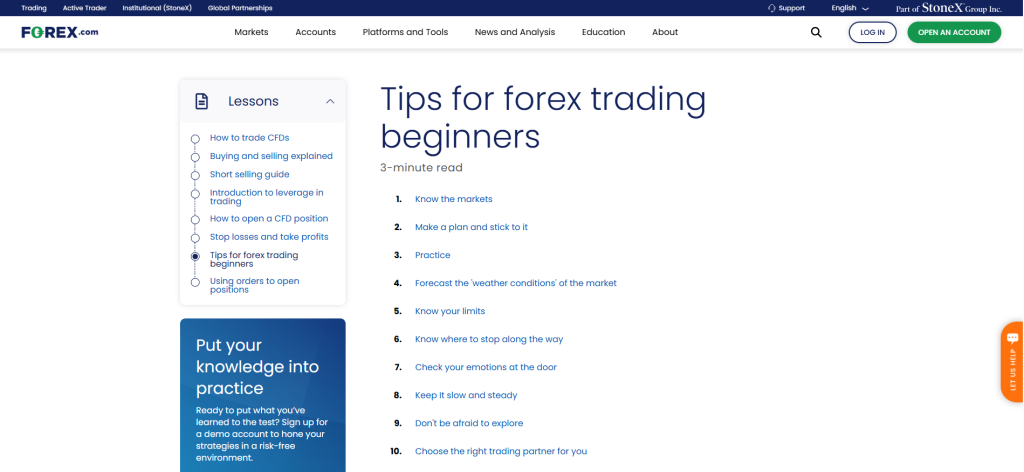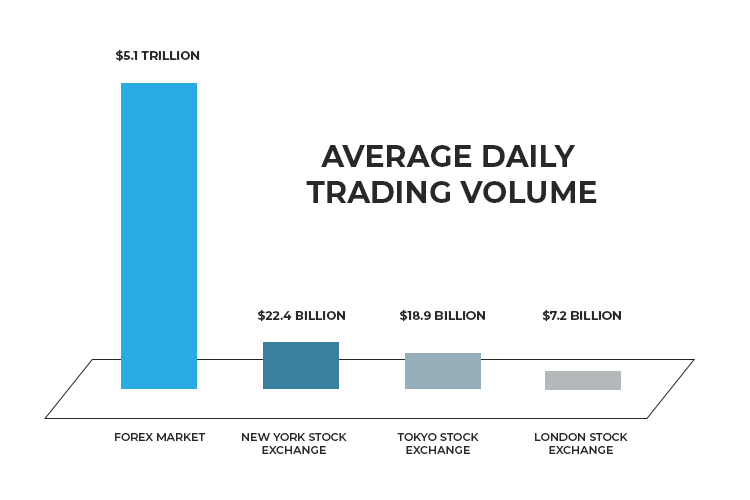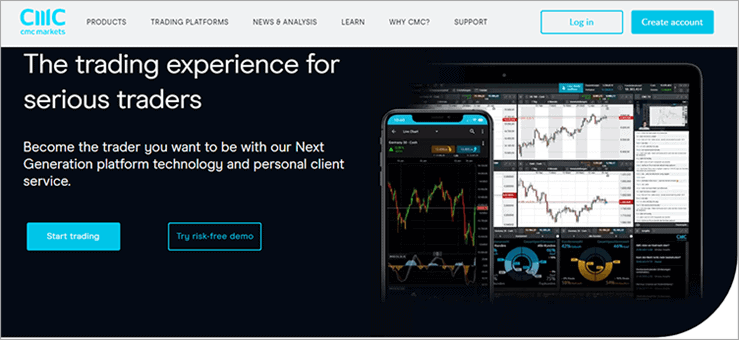Finding the right Forex broker can feel overwhelming when you’re just starting. I’ve been there—scrolling through endless lists, feeling unsure who to trust with my first deposit. The problem? Most broker lists out there either push affiliates hard or skip over the stuff that really matters to new traders like us: simple platforms, demo accounts, great education, and low minimums.
That’s why I built this list—not just to rank brokers, but to show you *why* they’re good for beginners. These picks come from personal testing, global trader feedback, and real-world experience from the ChronosTrading community.
- Forex.com, eToro, AvaTrade, and more evaluated for beginner features
- What regulations actually mean for your money
- My personal notes on using these platforms as a new trader
- Trust factors: education, support, and demo tools
- Clear comparison table so you can choose fast
By the end, you’ll know exactly which broker matches your comfort level, risk tolerance, and trading goals—without needing a finance degree to figure it out.
Best Forex Brokers for Beginners in 2025: Quick Comparison
This is the table I wish I had when I started. It highlights the key beginner-friendly features and cuts through the jargon.
| Broker | Minimum Deposit | Beginner Tools | Demo Account | Regulation |
|---|---|---|---|---|
| Forex.com | $50+ | Great research, simple UI | Yes | US (NFA), UK (FCA) |
| eToro | $10+ | CopyTrader, social trading | Yes | ASIC, CySEC, FCA |
| AvaTrade | $100+ | Educational tools, clean design | Yes | FSCA, ASIC, FSA |
| XTB | $250 | Research hub for beginners | Yes | FCA, KNF |
| IG | $100+ | Web platform, IG Academy | Yes | FCA, BaFin |
Forex.com: Great Balance of Power and Simplicity

Why I Recommend It
When I opened my first real trading account, I chose Forex.com. Why? It felt legit—backed by strong US regulation (NFA), the UI was clean, and I didn’t feel overwhelmed. The research tools weren’t fluffy—they helped me understand price action and plan my trades.
Strengths for Beginners
Forex.com offers one of the most well-rounded beginner packages. You get a free demo account, tons of explainers in the learning center, and enough technical tools to grow into over time.
What to Watch Out For
The platform can feel a bit dense when you start digging into indicators. But if you’re patient, it rewards you with depth.
eToro: Social Trading That Actually Works
Why I Recommend It
I used to be skeptical of copy trading. But eToro changed my mind. Watching how top traders think—and being able to copy them with a click—helped me learn faster. No textbook ever did that.
Beginner Highlights
For $10, you’re in. eToro’s CopyTrader system lets you follow real traders, and you can filter by risk score, region, assets, and more. It’s intuitive, and their app is one of the easiest to navigate.
Things to Consider
It’s not available in every country. And while copying trades sounds easy, you still need to understand what you’re doing. Use it to learn, not just earn.
AvaTrade: A Calm, Clean Place to Start
:max_bytes(150000):strip_icc()/AvaTrade-Logo-e7a7dfae73d24be69d11dd2ba0190411.jpg)
My Experience Using It
After my first 6 months on Forex.com, I tried AvaTrade to compare. I noticed right away how clean the UI felt—nothing felt rushed or hidden. AvaTrade feels designed for people like us—learners.
Education and Trust
AvaTrade’s library of explainers, webinars, and its sharp focus on risk warnings made me trust the brand. They’re regulated across multiple top-tier regions, so I felt safe funding my account.
Limitations
Some advanced tools are behind the learning curve. But that’s okay—you’re not here for automation just yet. You’re here to learn the ropes.
XTB: Best for Deep-Dive Learners
When I Tried XTB
I’m the kind of person who binge-reads tutorials. If that’s you, you’ll love XTB. It’s a bit pricier ($250 to start), but their xStation platform and deep research library are seriously impressive.
Beginner Support
What stood out was how organized the tutorials were. They don’t assume you know what pips or leverage are. You’re handheld, not talked down to.
Watch for This
XTB is great if you’re serious about learning and can afford the deposit. It’s not as flashy as eToro, but for folks like me who value content over design, it’s a strong contender.
IG: Reliable and Educationally Rich

How IG Impressed Me
IG stood out when I started exploring market structure. Their platform felt mature—like something used by people who take trading seriously. Their IG Academy became my go-to resource on weekends.
Top Benefits for Beginners
Excellent market analysis, reliable execution, and easy access to educational tools. I really appreciated their transparency—fees and spreads are explained clearly, which builds trust.
Challenges
They don’t accept US clients, so this one’s not an option if you’re based there. And while it’s beginner-friendly, the advanced tools can feel intimidating until you grow into them.
Pepperstone: Tech-Savvy and Speed-Focused

Why I Gave It a Shot
I tested Pepperstone during a time when I wanted tighter spreads and faster execution. They’re not just about low costs—they’re all about precision. If you like trading with MetaTrader 4 or 5, Pepperstone makes it seamless.
Strong Beginner Tools
The $20 minimum deposit makes it easy to try. Their education hub gave me a more advanced view of things like slippage and ECN trading without overwhelming me.
Who It’s For
This one’s great if you’ve got some trades under your belt and want to explore algorithmic trading or EAs down the line. It’s definitely for the more curious types.
Interactive Brokers: Low Fees, Deep Tools
Why It Surprised Me
I expected IBKR to be way too advanced for beginners. But their new simplified dashboard proved me wrong. Yes, the learning curve is there, but once I figured out the basics, it became a powerhouse tool.
Ideal Use Case
If you’re into tracking multiple markets or planning to grow into stocks and ETFs, IBKR gives you access to it all. Plus, their spreads and commissions are among the lowest I’ve seen.
What Slows It Down
The sheer amount of data and features can be paralyzing at first. But if you want to learn by doing, and you like detail, it’s worth sticking around.
OANDA: Speed and Simplicity in One
Where OANDA Shines
OANDA was the first platform I used on mobile. It just works—super intuitive, no fluff. I found its pricing model fair, and I liked how easy it was to enter and exit trades, even with a shaky internet connection.
Support for Beginners
Their in-app education and real-time economic overlays taught me more than I expected. I didn’t feel left out just because I wasn’t trading huge lots yet.
Is It Right for You?
Definitely consider OANDA if you want a trustworthy, mobile-first broker with fair costs and strong regulation backing it up (NFA, CFTC).
zForex: Tiny Deposit, Big Tools
One to Watch
zForex is kind of the new kid, but man—it impressed me. $10 gets you started, and it supports both MT5 and cTrader. I tested their demo and then went live within a day. Setup was lightning-fast.
Why It’s Great for Starters
If you’re brand new and nervous about funding an account, zForex lets you ease in. They even offer negative balance protection, which helped me sleep better that first week.
Things to Be Aware Of
They’re not regulated by top-tier bodies like the FCA, which made me cautious. But for risk-tolerant beginners who want flexibility and fast execution, it’s a useful sandbox.
How to Choose the Best Forex Broker for You
Figure Out Your Trading Style First
I didn’t realize how much my own personality would shape my trading journey. If you’re cautious, start with brokers like Forex.com or AvaTrade. If you love community vibes, eToro is a vibe in itself.
Check the Regulator
This part is dry but crucial. Stick to brokers regulated by FCA (UK), ASIC (Australia), or NFA (US) if you want solid investor protection. Trust me—this matters when stuff hits the fan.
Try Before You Fund
Demo accounts aren’t just toys. They show you how serious a broker is about onboarding beginners. Every broker on this list has one, and I suggest you test at least two.
FAQs
Which forex broker is best for absolute beginners?
For total beginners, I’d go with eToro or AvaTrade. eToro makes it social and fun, and AvaTrade offers serious hand-holding through education. Both are solid, intuitive, and supportive.
Is it safe to start trading with just $10?
Yep—if you choose a broker like eToro or zForex that supports micro accounts and has negative balance protection. But keep expectations realistic: you’re learning, not getting rich quick.
What should I avoid when choosing a forex broker?
Stay away from unregulated brokers or platforms that don’t clearly show their fees and spreads. If you can’t find basic info within 5 minutes, that’s a red flag.
Do I need MetaTrader to start?
Nope. But MetaTrader 4 or 5 is the standard for most brokers. If you want copy trading or slick mobile UX, go with something like eToro or OANDA instead.
The Final Word on Getting Started
We’ve covered a LOT here—more than any other beginner guide I’ve seen. From platforms like Forex.com and IG that offer deep trust and education, to new players like zForex pushing the envelope with tech and flexibility, you’ve got options.
My biggest takeaway? Try more than one demo. Seriously. The way you “feel” inside the platform matters. And remember, your first broker won’t be your last—but picking the right one early can make your learning curve smoother.
If you want a head start, I recommend beginning with AvaTrade, Forex.com, or eToro. You’ll learn fast, trade smart, and build habits that actually help you grow.
So—what kind of trader are you?
